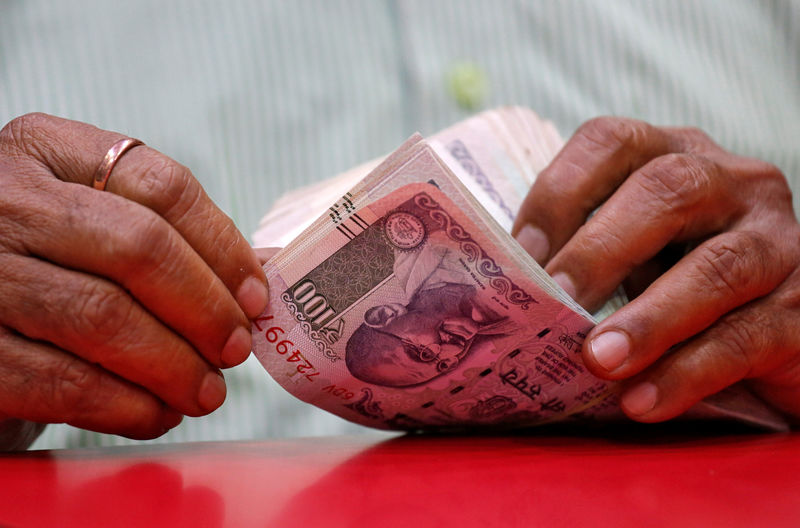(Bloomberg) -- India’s shadow lenders are facing fresh turmoil after asset manager Franklin Templeton shut funds late last month, prompting other large investors to dump the financiers’ debt.
Mutual funds are big buyers of non-bank financial firms’ bonds and some are struggling to meet redemptions after the biggest-ever forced closure of funds in the country. Spreads on AAA rated five-year bonds of shadow lenders have soared to an eight-year high. Three other gauges of the sector’s health compiled by Bloomberg showed no improvement last month, with a measure of shares of 20 financial firms and other companies staying depressed.
The scores attached to each of the measures have been calculated by normalizing the deviation of the latest value of the indicator from its yearly average. They are assigned on a scale of 1 to 7, with 1 implying weakness and 7 showing strength.
There are mounting concerns that the default rate in India may spike after the world’s biggest stay-at-home restriction halted manufacturing and wiped out consumption. Credit growth has remained sluggish, with banks hoarding cash, Bloomberg’s index of banking liquidity showed last month.
To help cash-starved shadow lenders cope with the coronavirus-fueled slowdown, the Reserve Bank of India last month announced it would inject 500 billion rupees ($6.6 billion) into the banking system to encourage lending. Banks were ordered to use the funds exclusively for buying debt of shadow lenders, but some opted to stay away.
Authorities have been struggling to steady India’s shadow-bank sector since the collapse of major infrastructure financier IL&FS Group in 2018. The firms form the backbone of Asia’s third-largest economy as they lend to everyone from small merchants to business titans.
India’s non-bank financiers aren’t alone facing the heat. Global peers in the U.S. were struggling until the Federal Reserve last month expanded its unprecedented support of credit markets to include the debt of riskier borrowers.
©2020 Bloomberg L.P.
